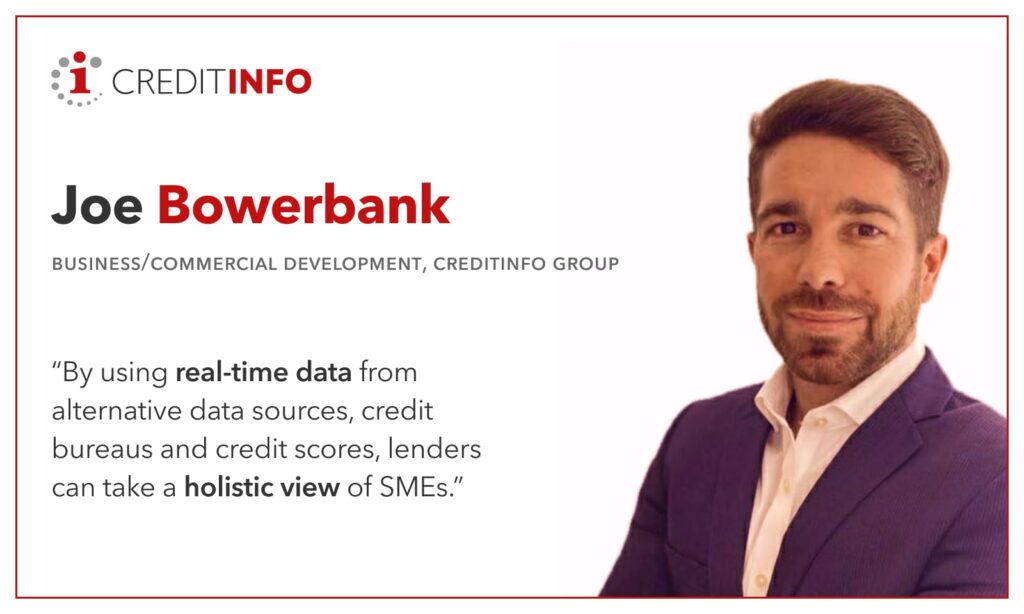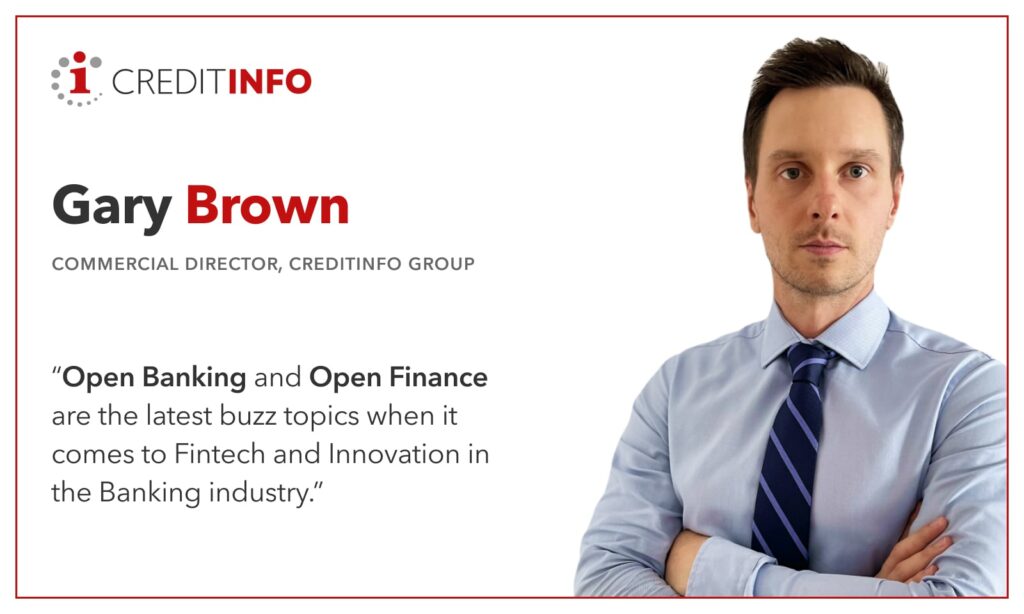May 2022
Paving the way for a brighter future through SME lending

Developing modern solutions and removing barriers, paves the way for a brighter future through SME lending
SMEs (Small and Medium-sized Enterprises) are known as one of the biggest business sectors in each economy, being important contributors to job creation and global economic development. They create more than 50% of employment worldwide.
SMEs have gained importance in developing economies. Although SMEs have some weaknesses, they are less affected by economic crises due to their flexibility and ability to keep up with changing conditions. SMEs are vital establishments to create an effective innovation ecosystemThis is shown by recent studies that SME’s can contribute to over 55% of GDP and over 50% of total employment.
SMEs can find it increasingly difficult to borrow money from traditional banks because of strict requirements. It is often seen that SMEs are riskier than large institutions as it is difficult for banks to evaluate them in the same way since they often do not have solid accounting systems. This difficulty in assessing their creditworthiness often impacts the bank’s ability to provide affordable credit. As a result, many SMEs are forced to look at alternative solutions such as expensive credit lines charging high interest rates or offering costly collateral. Neither of these options are sustainable for small businesses.
SMEs need fast decisions and a more agile, digital approach. This is where Creditinfo and local Fintechs are working in collaboration to support the sector. Together, we specialize in using technology to quickly assess each SME’s entire data footprint and then provide tailored financial solutions. Based on our experience in Africa, we can assess the credit risk an SME poses by using real-time data from multiple sources, including e-wallets, credit bureaus and credit scores. The traditional method, consisting of manual processes and hard copies, is now an outdated approach in the digital world.
Digital SME finance, using alternative data, offers an extraordinary opportunity for addressing some of the challenges. Every time SMEs and their customers use digital services, conduct banking transactions, make or accept digital payments, use their mobile phones, or manage their receivables and payables through a digital platform, they create alternative data. This real-time and verified data can be analyzed to determine both capacity and willingness to repay loans.
Specific SME assessment methodology can also be applied. For example, small companies tend to have a greater level of owner centricity. Therefore, blending business and personal data can enable the development of highly predictive blended scorecards that utilize the payment behaviour of business owners and managers and company credit data to produce a more comprehensive risk assessment.
Help is also needed from Central Banks to continue to support this sector. We are seeing reforms happening globally where Central Banks are implementing mandates for all banks to lend a set percentage of their credit portfolios to SMEs. Boosting the availability of finance for the SME sector, the reforms aim to ease the flow and reduce the high cost of credit to a sector that is considered an engine of growth for the future.
SME lending is rapidly growing, and by putting the customer needs first and using new solutions and data, we can begin to shift the status quo. Globally there is a shift toward digital lending solutions, which can support a level playing field for SMEs. By transforming this lending sector as a whole, we can make it more accessible for small businesses to grow and continue making a difference.
Joe Bowerbank – Business/Commercial Development, Creditinfo Group.
Angola’s first licensed credit bureau in partnership with Creditinfo to provide millions with access to finance

- Private credit bureau will support responsible lending and economic growth
- Millions of unbanked citizens and small businesses to gain access to lending for the first time
Luanda/London, 16th May 2022 – Creditinfo Group, the leading global service provider for credit information and risk management solutions, today announces plans to open Angola’s first licensed credit bureau, with Bureau Central Privada de Informação de Crédito SA (Bureau). This long-term strategic partnership, represents a vote of confidence and major investment into Angola’s buoyant economy, unlocking access to credit for millions of micro-to-medium sized businesses and citizens – many of whom are currently unbanked.
To deliver a world-leading private credit bureau solution, Creditinfo will combine Bureau‘s local knowledge with its own extensive experience delivering private credit bureau solutions in developing markets – including across Sub-Saharan Africa. The project’s initial remit will include Creditinfo’s most popular products and services, including CBS. Based on market appetite, further value-added products will be introduced.
Samúel White, Regional Director at Creditinfo said: “Accessing credit has long been a challenge across Sub-Saharan Africa. By opening Angola’s first private credit bureau, we’ll enable banks and other lenders to extend credit to citizens and businesses, helping to build and develop its already thriving economy. Supporting the unbanked to access finance requires a specific set of experiences and insights which Creditinfo has honed over decades of working across the region. We’re proud to be a leader in this space and can’t wait to open for another dynamic market together with our strategic partners.”
Cristiano Monnerat, Director at Bureau Central Privada de Informação de Crédito S.A. added: “Boasting significant untapped opportunities for wealth creation and a young, dynamic population, Angola represents an attractive investment for us. As such, we’re excited to be able to draw on Creditinfo’s global expertise to build a private credit bureau that’s run by local people, for local people. All in all, this marks a major step forward for Angola’s growing economy.”
-ENDS-
About Creditinfo
Established in 1997 and headquartered in Reykjavík, Iceland, Creditinfo is a provider of credit information and risk management solutions worldwide. As one of the fastest-growing companies in its field, Creditinfo facilitates access to finance, through intelligent information, software and decision analytics solutions.
With more than 30 credit bureaus running today, Creditinfo has the most considerable global presence in this field of credit risk management, with a significantly greater footprint than competitors. For
decades it has provided business information, risk management and credit bureau solutions to some of the largest, lenders, governments and central banks globally to increase financial inclusion and generate economic growth by allowing credit access for SMEs and individuals. For more information, please visit www.creditinfo.com
About Bureau Central Privada de Informação de Crédito S.A.
Established in 2021, the Bureau Central Privada de Informação de Crédito S.A. (Bureau) supports access to finance in Angola – with a focus on underserved segments of society with no formal access to credit facilities. Bureau is led by a highly qualified team of Brazilian advisors based in Angola. In February 2022, the Bureau received its operational license from the Central Bank of Angola, fulfilling all of the legislative and regulatory requirements.
The long-term strategic partnership with Creditinfo Group will provide Bureau with the necessary insights and industry best practices from similar markets to increase economic growth and improve financial inclusion across Angola.
Media Contacts:
Jack Benda
Red Lorry Yellow Lorry for Creditinfo Group creditinfo@rlyl.com
+44 (0)7760 291 679
Open Banking in the MENA region

We recently sat down with the Commercial Director at Creditinfo Group, Gary Brown, where he highlighted his thoughts on Open Banking in the MENA (Middle East and North Africa) region. These were some of his insights:
What is Open Banking?
Open Banking is a service that provides third-party financial service providers open access to consumer banking transactional data from banks and financial institutions using application programming interfaces (APIs). Open Banking is growing with popularity globally and in the MENA and could soon become the latest source of FinTech to shape the banking industry.
Delivered through open banking, banks allow access and control of customers personal and financial data to third-party service providers. Of course, customers are required to grant consent to allow the bank access and permission to share. Lenders are then able to use customers data and transaction history to drive insights such as spending habits and regular payments. This will enable more competition and innovation to financial services which will lead to better products to help consumers manage their money.
What are the benefits to Open Banking?
Open Banking allows lenders to add an additional layer of data and complete a more accurate and comprehensive picture of a customer’s financial situation to offer more competitive and profitable loan products. It can also benefit the consumer and help them manage their own expenses and accounts. An open Banking application can display all the consumers banking accounts in one place and display their spending habits and behaviors.
Open Banking is a straight-forward solutions with low integration costs that can greatly benefit large and established banks, small banks and digital banks. It can reduce operational costs and provide a wider customer outreach through digital channels, hugely important in the MENA with such a high percentage of the population with access to a digital smartphone. This new technology can strengthen customer relationships and customer retention by helping consumers manage their expenses and connect with them through digitalization.
How will Open Banking improve the customer experience in the MENA?
With such high smartphone usage across MENA, Open Banking will provide consumers the ability to have full control over their finances under one view, as well provide them with a better range of products and services personalized to their financial situation. Consumers across the MENA are requesting more flexible and forward-looking systems that support fintech innovation. Open Banking allows consumers to be in control and empowers them and small businesses by creating a simple platform for accessing, controlling, and sharing their data so they can benefit from it. With connected accounts across the financial services landscape, consumers and small businesses can put their data to work, whether it’s for one specific purpose or across multiple apps and services.
Data exchange is crucial across any financial ecosystem and Open Banking plays a vital role by providing a new additional layer of data. Enabling a secure and safe flow of data across accounts and apps efficiently will fuel innovation for banks and provide many new benefits across the industry, such as improving financial literacy and extend financial inclusion to the underserved.
Can you explain the differences between Open Banking and Open Finance?
Open Banking and Open Finance are the latest buzz topics when it comes to fintechs and innovations in the Banking industry. Open Finance has been developed from Open Banking and will provide an extra layer of data available to consumers and organizations, Open Finance will include other financial data, such as mortgages, savings, pensions, insurance, utilities, etc. This will enable consumers to provide access to their entire financial footprint and provide them with an even better customer experience.
To better serve the unbanked or underserved, Open Finance will further level the playing field and make it easier for these consumers to have access to affordable and sustainable credit, providing everyone access to the services they require and deserve. With more access to finance, we can expect to see better economic growth across MENA.




